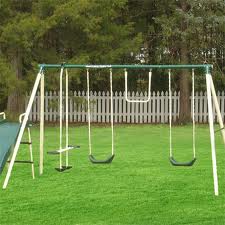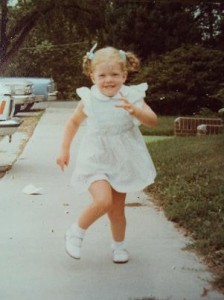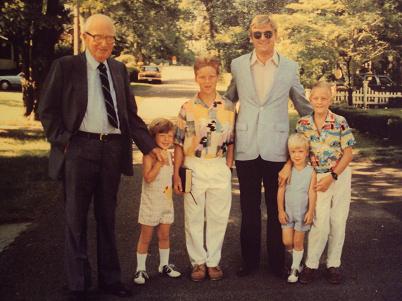Through cyberspace relationships I’ve heard incredible stories of hardship coming to widows and widowers. One woman lost her husband, her mother and one of her children in the same 18 month period, and yet she perseveres.
While walking Jack today, I saw a great visual for this kind of resilience, a simple day lily growing on a hill. It looked every bit like it’d once been at death’s door but was now thriving.
The life-giving stem had been crimped, as if someone had tried to snap it off but failed to break it completely. Left hanging, it had gathered new strength through what little stem was left in tact and had reversed its direction. Today it was growing toward the sun and had put forth a fresh bloom.
The same can be true for people. Life’s load can force us low, but as we entrust ourselves to God, he prevents total breakdown. The question is, why does he let us get so close to complete collapse before rescuing us? Can’t he hear us “crying uncle” as we go down?
I can think of several reasons why severe adversity comes to us. They’re the reasons Christians usually give in an effort to bring comfort or understanding: (1) Life isn’t fair, and bad things happen to good people; (2) Disease and accidents occur because we live in a fallen, sinful world God never intended; (3) God allows trials so we’ll turn to him during the struggle; (4) Sometimes God takes people in death to save them from something worse; (5) God wants to show us he can bring good things out of bad circumstances.
Each statement contains an element of truth, and I’ve experienced bits of all of them through Nate’s cancer, death and my widowhood. But when a loved one is hurting or even dies, none of those answers bring much satisfaction.
More satisfying to me has been simply to accept the truth that I’ll never fully understand. Although God is omniscient and omnipotent, he makes the choice not to stop all evil, terminate all persecution, or heal all illness.
He could, but he doesn’t.
And that’s the part I don’t like and don’t get. It’s a disconnect from human logic. But then again, he’s not human.
The good news is, miserable circumstances are also a golden opportunity to trust God in spite of them. It’s a chance to increase my faith in him and overlay the negatives with the perfection and goodness of his character. He is without flaw, the topmost Being in existence. I can rail against him if I want, attacking, spewing anger, laying blame. But at the end of it I’d feel just as bad.
Strangely, it’s when the flailing and fighting has stopped that God pours his peace into troubled people. He may not change the circumstances, but he gives a new way to look at them.
And just like the damaged lily, we end up blossoming again, too.
“When you pass through the waters, I will be with you.” (Isaiah 43:2)




